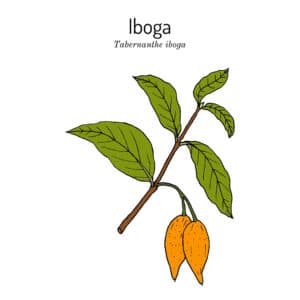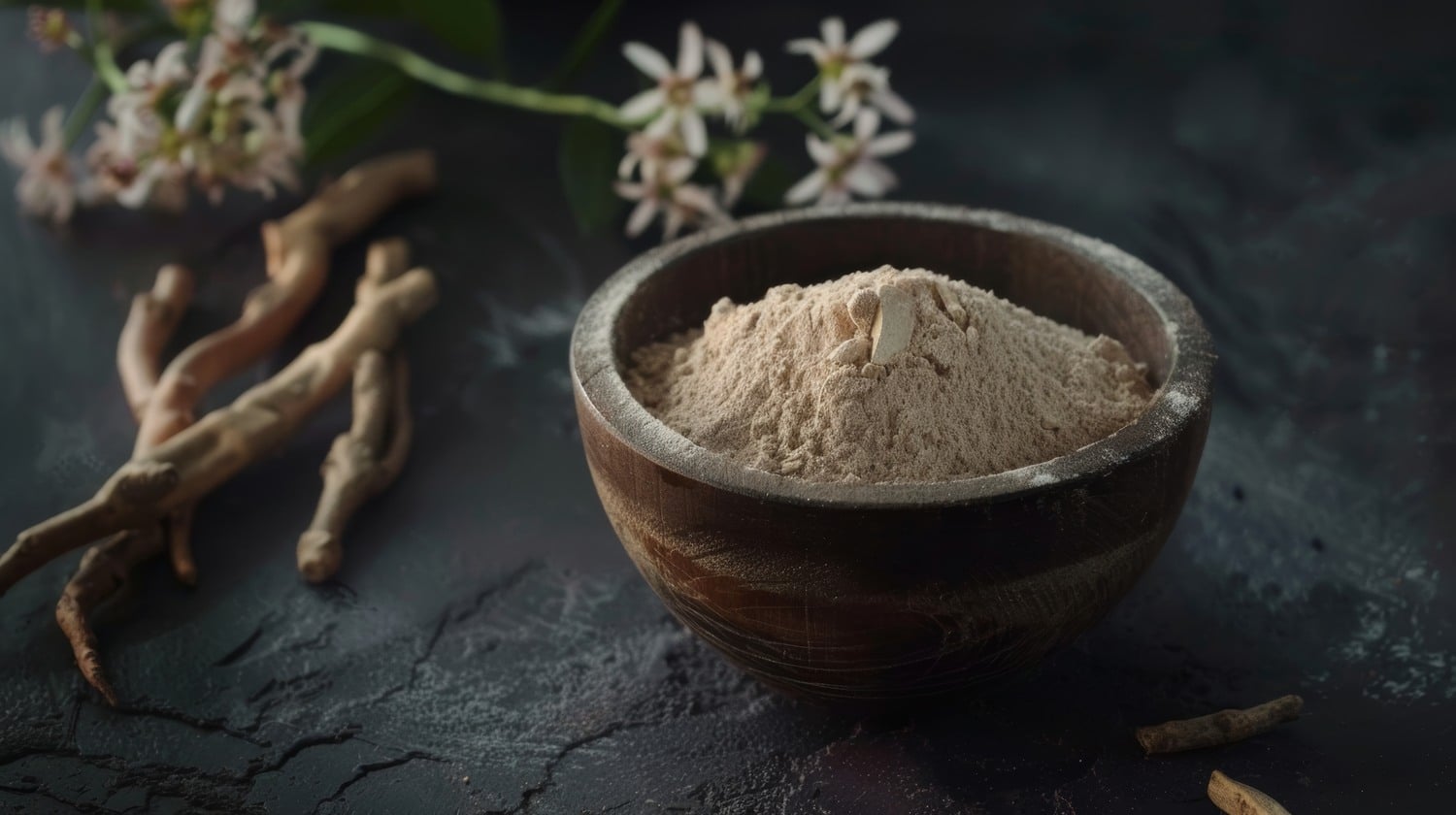Ibogaine is a natural psychoactive substance found in the African shrub Tabernanth Iboga. It has emerged as a promising alternative for the treatment of various addictions. In some treatment facilities, doctors use this compound to help patients overcome serious drug dependencies. While research is still ongoing, ibogaine has been shown to help interrupt addictive patterns and behaviors and reduce withdrawal symptoms. While still illegal in the United States, clinical research around the world continues to study its therapeutic value. If you’re considering ibogaine treatment, it’s important to understand what ibogaine does and the potential benefits of using ibogaine treatment.

What Is Ibogaine?
Ibogaine is a natural compound found in the root bark of the iboga plant, a shrub that is indigenous to Central and West Africa. This powerful substance’s ceremonial use was first documented during French and Belgian expeditions in the 19th century. Local communities, especially in Gabon, Cameroon, and Congo, used ibogaine regularly, and it played a vital role in the tradition and rituals of the Bwiti and Pygmy spiritual practices. It has gained attention for its potential in treating addiction, particularly to heroin and other opiates.
Over time, ibogaine has drawn attention from Western scientists as a promising treatment for drug addiction, especially opioid dependence, and disorders such as PTSD and brain trauma. This fascinating compound was first documented by European colonizers, who brought it back to Europe, where it was initially used as a stimulant.
Ibogaine’s anti-addictive properties were first discovered in 1962 by Howard Lotsoft when he was 19 years old and a regular heroin user. He tried ibogaine for the first time and experienced a deep visionary state where he interacted with his earliest memories. Thirty hours later, when the effects subsided, he discovered that he no longer craved heroin or experienced any withdrawal symptoms. Reportedly, he then gave ibogaine to seven other addicts, five of whom stopped taking drugs immediately afterward.
Howard Lotsoft authored numerous research papers about ibogaine’s anti-addictive properties and was awarded patents for the treatment of various dependencies with ibogaine. In later years, ibogaine was declared a Schedule I substance in the United States. However, it continued gaining attention through anecdotal evidence, journalism, and scientific research.
What Is Ibogaine Used For?
Ibogaine is popular for its healing and transformative effects. It can help treat substance use disorders as well as mental health issues. Here are some of the key uses of ibogaine:
Addiction Treatment
Ibogaine has been used to treat substance use disorder, particularly for people dependent on substances such as alcohol, ketamine, cocaine, methamphetamine, heroin, oxycodone, fentanyl, methadone, buprenorphine, and other opioids. Ibogaine is thought to act on the pathways in the brain that are related to addiction. It has the potential to lower withdrawal symptoms and cravings. It may also reset neuroreceptors in the brain, resetting brain chemistry and working against the effects of addiction.
- Psychoactive Properties & Neurochemical Effects: Ibogaine interacts with several neurotransmitter systems, including serotonin, dopamine, and glutamate. It is believed to reset the brain’s reward pathways, which are often hijacked by addictive substances.
- Withdrawal Alleviation: One of the most significant benefits of Ibogaine is its ability to reduce withdrawal symptoms from heroin and other opiates, often within 24-48 hours of administration.
- Craving Reduction: Many patients report a significant decrease in cravings for opioids after treatment.
- Psychological Insight: The psychoactive experience of Ibogaine can provide deep psychological insights, helping individuals understand and overcome the root causes of their addiction.
Mental Health Conditions
Ibogaine provides neuroplasticity, which allows your brain to reorganize neural pathways. It may have the potential to help individuals with depression and PTSD. Ibogaine influences your neurotransmitters, such as dopamine, serotonin, and oxytocin, in order to help alleviate symptoms of anxiety and mood disorders. It also provides a deep, introspective experience that helps patients confront their past trauma and reprocess difficult emotions.
How Does Ibogaine Treatment Work?
Ibogaine promotes neuroplasticity, resets the brain’s reward system, and interacts with neurotransmitters. These effects reduce withdrawal symptoms and provide patients with the opportunity to break free from trauma and substance use disorder and begin their sobriety journey.
Resetting the Brain’s Reward System
Ibogaine treatment is thought to interrupt patterns of substance use disorder by restoring a healthy dopamine level and reducing cravings. By resetting the brain’s reward system, it provides patients with a period of time to detox and establish new routines that help them maintain sobriety.
Promotion of Neuroplasticity
Traumatic brain injuries and substance use affect your brain’s neural pathways. Ibogaine can promote neuroplasticity, which may allow the brain to recover from injury or addiction. Ibogaine has shown potential for treating PTSD and substance use disorder, which may be partly due to improved neuroplasticity.
Reducing Withdrawal Symptoms
Withdrawal symptoms make it difficult for many people to detox from certain substances, especially opiates, and can trigger relapses. Ibogaine reduces withdrawal symptoms and eases the detox process. Unlike traditional detox methods, ibogaine interrupts an individual’s addiction cycle at its core. It resets the brain’s reward system and helps minimize cravings.
Benefits of Ibogaine Treatment
Ibogaine treatment is a revolutionary approach that has helped numerous individuals reset how their brain functions and obtain long-term transformation. Unlike other traditional methods, it works at a deep level, targeting the emotional and physiological causes of substance use disorder.
Effective for Addiction Treatment
Ibogaine is known for its ability to interrupt the cycle of addiction. Whether you’re dependent on alcohol, opioids, or other substances, ibogaine helps you reset your brain’s chemistry. It reduces cravings and withdrawal from opioids, alcohol, and other substances and helps patients regain control over their lives.
Promotes Emotional Healing
Individuals dealing with addictions and mental health issues often have deep underlying trauma. Ibogaine treatment induces an introspective state that allows patients to confront their past experiences, reprocess traumatic experiences, and gain new perspectives on their lives. During this treatment, patients can gain powerful insights that help them release their past burdens and move forward.
Supports Mental Health
Ibogaine has shown promising results in alleviating mental health conditions such as depression and PTSD. Ibogaine supports mental health by interacting with neurotransmitters in the brain.
Challenges of Ibogaine Treatment
Ibogaine has gained recognition due to its ability to help patients overcome addiction. However, despite its promising effects, ibogaine treatment does come with some risks and side effects.
This treatment is not FDA-approved due to a lack of conclusive studies and safety concerns. Some of the health risks of ibogaine treatment include cardiac issues, nausea, and dizziness. Ibogaine treatment is illegal in the United States but unscheduled in countries like Mexico.
Ibogaine can also trigger vivid visions and emotional breakthroughs, which can be overwhelming for certain patients. If you don’t have proper support, you may struggle to process the treatment experience.
How to Get Started with Ibogaine Treatment?
Experience Ibogaine provides personalized ibogaine treatment to make this revolutionary treatment available to those who need it most. Our process includes pre-treatment preparation, assessing potential risks, comprehensive ibogaine treatment procedures, and post-treatment care. Our team provides an optimal treatment environment to prioritize your safety and comfort. Reach out to us today for more information.
Frequently Asked Questions (FAQs)
In the United States, ibogaine is classified as a Schedule I substance, which makes it illegal. We offer medically supervised ibogaine treatment in Mexico, where it is unscheduled.
You can access reliable ibogaine treatment with us at Experience Ibogaine Treatment Center. Our compassionate team provides personalized ibogaine treatment to help you begin your sobriety journey.
Ibogaine treatment lasts for 6 to 12 hours. Most patients need a day or two of recovery, during which we provide nutritious meals, medication, and medical supervision.




